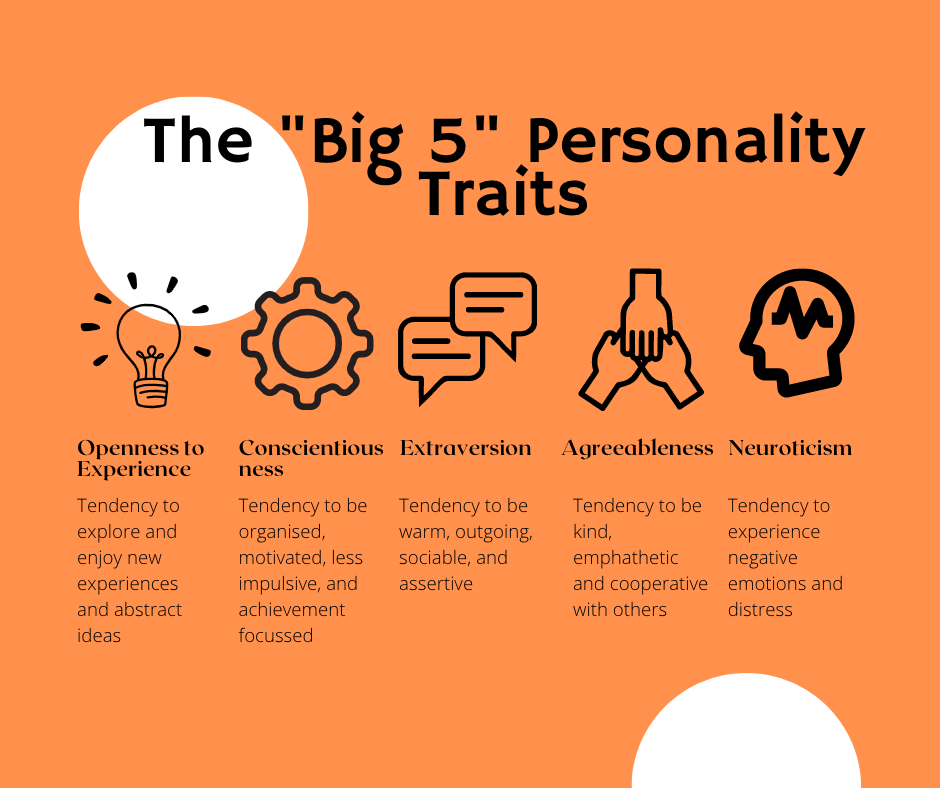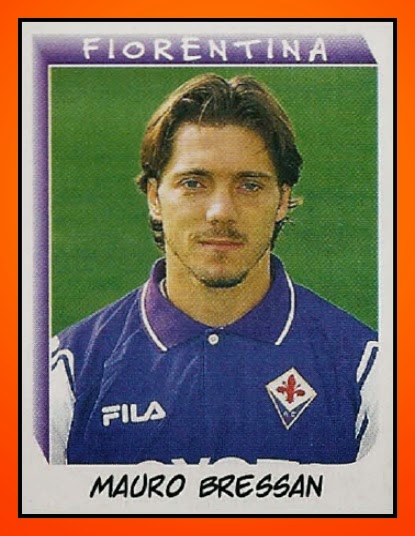
Beyond the Boots: Unpacking the Diverse Personalities of Footballers
In the high-octane world of professional football, where physical prowess and technical skill often steal the spotlight, it’s easy to overlook the profound impact of another, equally critical element: personality. Beyond the dazzling dribbles, thunderous shots, and pinpoint passes, lies a complex tapestry of individual traits that dictate a player’s journey, influence team dynamics, and shape their legacy. Football is not merely a game of feet; it’s a battle of wills, a symphony of diverse characters, and a testament to the power of the human spirit.
This article delves into the fascinating realm of footballer personality types and traits, exploring how these psychological dimensions contribute to success, resilience, leadership, and the very fabric of the beautiful game. From the relentless workhorse to the artistic maestro, the fiery leader to the cool-headed pragmatist, each archetype brings a unique flavour to the pitch and the locker room.
The Foundational Pillars: Universal Traits of Elite Footballers
While distinct personality types emerge, certain core traits are almost universally present in players who reach the pinnacle of the sport. These form the bedrock upon which more specialized characters are built:
- Unwavering Competitiveness: At its heart, football is about winning. Elite footballers possess an inherent, almost primal, desire to triumph. This isn’t just about the final score; it’s about winning every duel, every sprint, every training drill. It fuels their drive to outwork, outthink, and outperform opponents and even teammates.
- Iron-Clad Discipline and Work Ethic: Talent alone is rarely enough. The journey to the top, and staying there, demands immense discipline. This extends beyond the training ground to diet, rest, recovery, and a relentless pursuit of improvement. These players are often the first to arrive and the last to leave, dedicating countless hours to honing their craft.
- Exceptional Resilience: The life of a professional footballer is fraught with setbacks: injuries, missed penalties, team losses, public criticism, and moments of self-doubt. Resilience – the ability to bounce back, learn from mistakes, and maintain focus in the face of adversity – is paramount. It separates those who fade away from those who endure and ultimately thrive.
- Burning Ambition: A deep-seated ambition to achieve greatness, break records, and leave an indelible mark on the sport drives many top players. This isn’t just about financial gain; it’s often a personal quest for mastery and recognition, pushing them beyond perceived limits.
- Adaptability: The modern game is constantly evolving, and players must adapt to new tactics, different coaches, varying teammates, and even new leagues or countries. Those who can adjust their game, their mindset, and their lifestyle tend to have longer and more successful careers.
Archetypes of the Pitch: Distinct Personality Types
Beyond these foundational traits, footballers often gravitate towards specific personality archetypes, each bringing a unique set of strengths and challenges to the team:
1. The Commander/The Leader
- Traits: Dominant, assertive, vocal, responsible, inspiring, tactically astute, demanding.
- On the Pitch: These players are the generals, marshaling their troops, organizing defenses, and dictating the tempo of the game. They are often found in central positions (centre-backs, defensive midfielders, or central attacking midfielders) where they can influence the entire team. They lead by example, but also through communication, motivation, and sometimes, a stern word. They thrive under pressure, taking responsibility for results.
- Off the Pitch: Often the unofficial or official captain, they are the voice of the locker room, mediating disputes, rallying spirits, and embodying the club’s values. They are highly respected, sometimes feared, and demand excellence from those around them.
- Examples: Paolo Maldini, Roy Keane, Sergio Ramos, Carles Puyol, Jordan Henderson.
2. The Maverick/The Artist
- Traits: Creative, unconventional, individualistic, unpredictable, spontaneous, confident, sometimes temperamental.
- On the Pitch: These are the players who produce moments of magic out of nowhere. They see passes others don’t, attempt audacious dribbles, and possess an innate flair that electrifies stadiums. Their play is often characterized by improvisation and a fearless willingness to take risks. While they can be frustratingly inconsistent at times, their flashes of brilliance are often match-winning. They typically occupy attacking roles where their freedom to express themselves is maximized.
- Off the Pitch: They might be enigmatic, preferring to let their feet do the talking, or they could be outspoken and controversial. They often march to the beat of their own drum, challenging norms and sometimes clashing with authority, but their sheer talent earns them leeway.
- Examples: Ronaldinho, Eric Cantona, Zlatan Ibrahimović, early Neymar, Hristo Stoichkov.
3. The Engine/The Workhorse
- Traits: Industrious, selfless, disciplined, tireless, humble, reliable, high stamina, consistent.
- On the Pitch: These players are the unsung heroes, covering every blade of grass, winning countless tackles, and providing the defensive shield or relentless pressing that allows more flamboyant teammates to shine. They are the backbone of the team, known for their incredible work rate and unwavering commitment to the collective effort. They often play in central midfield or full-back positions, providing endless energy and breaking up opposition attacks.
- Off the Pitch: Typically modest and unassuming, they prioritize team success over individual accolades. They are highly respected for their dedication and unwavering effort, embodying the spirit of sacrifice.
- Examples: N’Golo Kanté, Gennaro Gattuso, Park Ji-Sung, James Milner.
4. The Maestro/The Architect
- Traits: Intelligent, calm, visionary, precise, composed, analytical, technically superb, often quiet.
- On the Pitch: These are the orchestrators, the players who dictate the tempo, thread impossible passes, and control the flow of the game with their vision and tactical understanding. They possess an almost telepathic ability to read the game, anticipating movements and exploiting spaces. They are rarely flustered, even under intense pressure, maintaining composure to execute complex plays. They are typically central midfielders or deep-lying playmakers.
- Off the Pitch: Often thoughtful and introverted, they might not be the most vocal leaders, but their influence is felt through their intelligent play and exemplary professionalism. They lead by example, demonstrating composure and tactical acumen.
- Examples: Xavi Hernández, Andrea Pirlo, Luka Modrić, Mesut Özil.
5. The Predator/The Finisher
- Traits: Single-minded, ruthless, confident, obsessive, opportunistic, often highly self-focused, sometimes arrogant.
- On the Pitch: These players live for goals. Their entire game is geared towards finding the back of the net, and they possess an uncanny knack for being in the right place at the right time. They are clinical, taking chances with lethal efficiency, and are often unfazed by missed opportunities, always believing the next one will go in. Their confidence can border on arrogance, but it’s often a necessary component for their relentless pursuit of goals. They are almost exclusively strikers or attacking wingers.
- Off the Pitch: Their personality often reflects their on-field drive – they are highly ambitious, dedicated to perfecting their craft, and often have a strong personal brand. They thrive on individual recognition and the thrill of scoring.
- Examples: Cristiano Ronaldo, Robert Lewandowski, Erling Haaland, Ruud van Nistelrooy, Pippo Inzaghi.
The Interplay: Personality and Positional Demands
While a player’s inherent personality might lead them towards certain positions, the demands of a role can also shape and refine their traits.
- Goalkeepers often require extreme calm, focus, and a strong sense of responsibility, as their errors are magnified.
- Defenders benefit from discipline, aggression (controlled), and excellent organizational skills.
- Midfielders need a blend of vision, work rate, and the ability to dictate play – a mix of the Engine and Maestro.
- Forwards thrive on instinct, confidence, and ruthlessness – epitomizing the Predator.
However, the beauty lies in the overlap. A "Leader" can be a defender or a midfielder. A "Maestro" can play a deeper role or behind the striker. Modern football increasingly values players who can adapt their personality to different roles and situations.
Beyond the Pitch: The Wider Impact of Personality
A footballer’s personality extends far beyond their performance on the field:
- Team Cohesion: The blend of diverse personalities in a squad creates the unique chemistry of a team. Leaders motivate, Engines provide stability, Maestros add intelligence, and Mavericks bring unpredictable brilliance. A harmonious locker room, built on mutual respect and understanding of different personalities, is often a prerequisite for sustained success.
- Fan Connection: Fans often connect with players not just for their skill, but for their character. A fiery leader, a humble workhorse, or a charismatic artist can become cult heroes, embodying values that resonate with the supporters.
- Longevity and Post-Playing Career: A player’s adaptability, resilience, and personal drive often determine the length of their career and their success in transitioning to roles like coaching, punditry, or management.
Nature vs. Nurture: Can Personality Be Developed?
While certain personality traits might be innate, a significant portion can be developed and refined through experience, coaching, and self-awareness. Sports psychologists play an increasingly vital role in professional clubs, helping players:
- Enhance Resilience: Through mental fortitude training, visualization, and coping strategies.
- Improve Leadership Skills: By fostering communication, empathy, and strategic thinking.
- Manage Emotions: Learning to control aggression, frustration, or overconfidence.
- Cultivate Self-Awareness: Understanding their strengths and weaknesses, and how their personality impacts others.
Coaches also play a crucial role in nurturing different personalities, understanding that not every player responds to the same motivational techniques. Some thrive on direct challenge, others on encouragement, and some need the freedom to express themselves.
Conclusion: The Human Element of the Beautiful Game
In conclusion, while the statistics of goals, assists, and clean sheets paint a quantitative picture of success, the qualitative impact of personality types and traits remains equally, if not more, compelling. From the stoic composure of a goalkeeper to the explosive exuberance of a striker, each footballer brings a unique psychological fingerprint to the game.
The blend of competitive drive, unwavering discipline, and remarkable resilience forms the common ground, but it’s the distinct archetypes – the Commander, the Maverick, the Engine, the Maestro, and the Predator – that add depth, drama, and endless fascination to the sport. Understanding these personality dimensions allows us to appreciate not just what a player does, but who they are, recognizing the intricate human element that truly makes football the beautiful game. It’s a reminder that behind every athletic feat lies a complex individual, driven by a unique blend of traits that shapes their destiny on and off the pitch.



